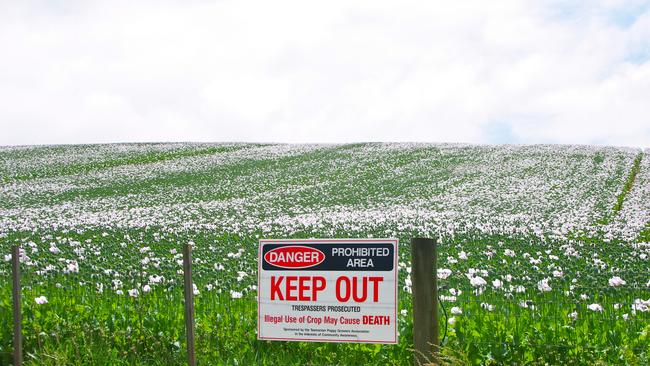Heavy rain damages Tasmania’s poppy crop
Heavy rain in early December has taken a toll on Tasmania’s 6000ha poppy crop. See what it means for growers.
Wet weather in early December has wreaked havoc on Tasmania’s 6000ha poppy crop which has doubled in planting area from last season.
Growers say they will likely suffer yield losses but are holding out until harvest starts in a couple of weeks to determine the toll.
The impact of the weather could also reduce the initial estimated returns of around $6000/ha when overall yields are calculated. And while the planting area was revised up this year, production hit a peak in Tasmania back in 2012 when 28,000ha were planted.
Extractas Bioscience field operations manager Noel Beven said there was a major weather event that delivered up to 250mm of rain in December.

He said the rain was a double-edged sword because it had generated yield increases in parts, but was also responsible for extensive crop damage.
“It is never all good or all bad,” he said.
“There are growers who lost significant amounts of crop, but then we have crops that have benefited too,” he said.
Mr Beven said last season Tasmanians grew 3000ha of poppies but there was demand and contracts from overseas customers that resulted in a doubling of the planting area.
“We will have a shortfall of what we were budgeting for due to the weather, but it is a bit early to say yet, we will wait and see,” he said.
Early harvest of poppy crops from southern Tasmania and the midlands was due to start on January 10 and then progress to the north and north west by the end of the month and into February.

Mr Beven said the early crops had finished flowering but overall you could say the state was in “full flower.”
“It is a picturesque time of the year for us,” he said.
Poppies in Tasmania are grown for their alkaloid material with varieties including Oripavine, Noscapine, Codeine and Thebaine.
Chris Badcock who runs a livestock and cropping operation at Hagley in the state’s north said he measured 150mm of rain in the gauge in early December.
“It would have been lovely rain if it was spread out over four weeks,” he said.
Mr Badcock said the damage to his poppy crop was already showing from the deluge.
“I reckon we have lost about 25 per cent (of the crop),” he said.
The immediate damage was evident, and then mildew followed.
“Surprisingly, there are parts of the crop that have come through quite good; it seems to just be affecting the lower-lying parts,” he said.
Mr Badcock said his crop would be harvested towards the end of this month or early February.




